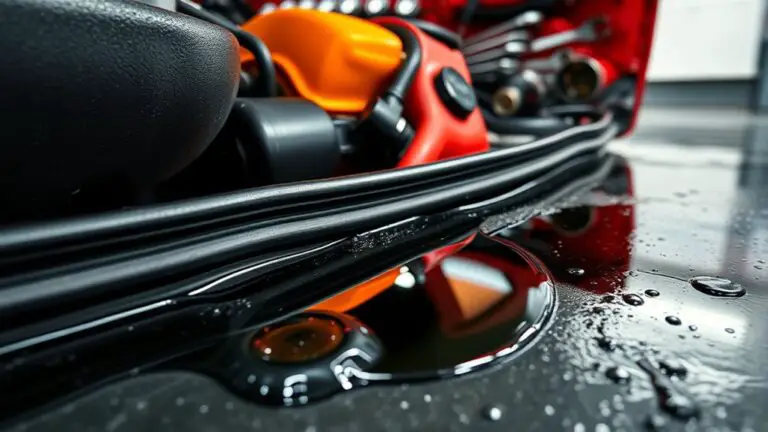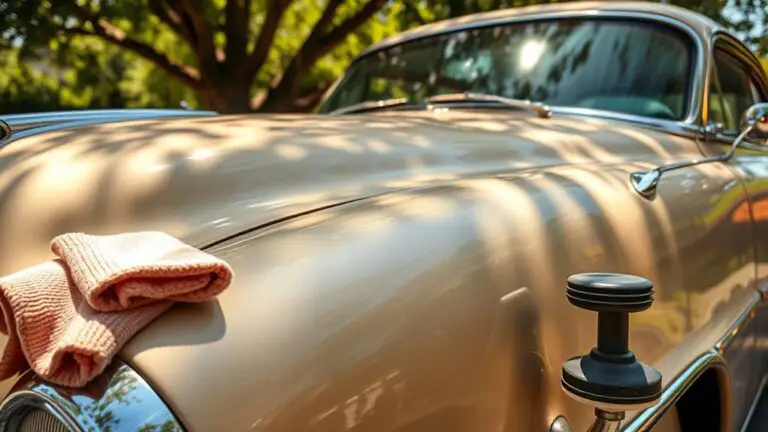Can You Use Windex On Car Paint? [Explained]
Windex is a popular household cleaning product that is often used to clean windows, mirrors, and other glass surfaces. However, some people wonder whether it is safe to use Windex on car paint. While Windex can be effective at removing dirt and grime from car windows, using it on car paint is not recommended.
Windex is not designed for use on car paint and contains chemicals that can potentially damage the finish or cause discoloration. In this article, we will explore the potential risks of using Windex on car paint and recommend safer alternatives for car cleaning.
No, it is not recommended to use Windex on car paint. Windex contains chemicals that can potentially damage the paint or cause discoloration. It is designed for use on glass surfaces and not for car paint. It is best to use products specifically designed for car cleaning to ensure the safety of your car paint.
What Ingredients Make Windex Unsafe For Car Paint?
Windex contains several ingredients that can make it unsafe for car paint, including:
- Ammonia: Windex contains ammonia, which is a strong cleaning agent that can be harsh on car paint. Ammonia can cause the paint to dry out, fade, or even crack.
- Alcohol: Windex also contains alcohol, which can be drying to car paint and cause discoloration or damage.
- Fragrances and dyes: Windex may contain fragrances and dyes that can also potentially damage car paint.
- Surfactants: Windex contains surfactants that can potentially strip away protective coatings or waxes on car paint.
Are Glass Cleaners Safe On Car Paint?
No, glass cleaners in general are not safe to use on car paint. Glass cleaners, like Windex, contain chemicals that are designed to clean and shine glass surfaces but can be harmful to car paint. Glass cleaners usually contain ammonia, alcohol, or other harsh chemicals that can damage the paint or finish of your car. Using glass cleaners on car paint can cause the paint to dry out, fade, or even crack.
Additionally, glass cleaners can strip away protective coatings or waxes on car paint, leaving the surface vulnerable to damage. It is best to use products specifically designed for car cleaning, such as car wash soap, detailing spray, and waterless car wash, to ensure the safety of your car paint.
What About Ammonia-Free Glass Cleaners?
While ammonia-free glass cleaners may be less harmful to car paint than those that contain ammonia, they are still not recommended for use on car paint. Most glass cleaners, even ammonia-free ones, contain other chemicals that can potentially damage the paint or finish of your car. Glass cleaners may contain alcohol or surfactants that can strip away protective coatings or waxes on car paint, leaving the surface vulnerable to damage.
To ensure the safety of your car paint, it is best to use products specifically designed for car cleaning, such as car wash soap, detailing spray, and waterless car wash. These products are formulated to be safe for use on car paint and will help protect the finish and appearance of your vehicle.
What Are The Recommended Uses For Windex In Your Car?
While Windex is not recommended for use on car paint, it can still be useful for some cleaning tasks in your car. Here are some recommended uses for Windex in your car:
Cleaning car windows and mirrors
Windex is designed for use on glass surfaces and can be effective at removing dirt and grime from car windows and mirrors.
Cleaning car headlights
Windex can be used to clean and polish plastic headlights to improve their clarity and appearance.
Removing sticky residue
Windex can be effective at removing adhesive residue left behind by stickers or decals on your car windows.
Safe Alternatives To Windex
If you are looking for a safe alternative to Windex for cleaning your car windows, mirrors, or plastic headlights, there are several options available:
Glass cleaners specifically designed for cars
There are many glass cleaners available that are formulated to be safe for use on car windows and mirrors. These products are typically ammonia-free and contain other gentle ingredients that won’t harm the paint or finish of your car.
Vinegar and water
A mixture of vinegar and water can be an effective and natural alternative to Windex. Mix equal parts vinegar and water in a spray bottle and use it to clean your car windows and mirrors.
Microfiber cloths
Microfiber cloths are a gentle and effective way to clean car windows and mirrors without the need for harsh chemicals. They are highly absorbent and can remove dirt and grime without leaving streaks or scratches.
Waterless car wash
Some waterless car wash products can also be used to clean car windows and mirrors. These products are typically safe for use on glass and won’t harm the paint or finish of your car.
What Should I Do If I Have Been Using Windex On Car Paint?
If you have been using Windex on your car paint, it is important to stop using it immediately. Windex contains chemicals that can be harmful to car paint and may cause damage over time. If you have used Windex on your car paint in the past, you may notice that the paint has become dull, faded, or discolored.
To minimize any damage that may have been caused by using Windex on your car paint, you can take the following steps:
Wash your car thoroughly
Use a car wash soap and water to wash your car thoroughly, paying close attention to the areas where you have used Windex.
Clay bar treatment
Consider using a clay bar treatment to remove any contaminants or residues that may have been left behind by the Windex.
Apply a protective coating
Once your car is clean and dry, apply a protective coating such as a wax or sealant to help protect the paint from further damage.
Seek professional help
If you are unsure about the extent of the damage caused by using Windex on your car paint, or if you have noticed significant damage to the paint, it may be best to seek the help of a professional auto detailing service.




